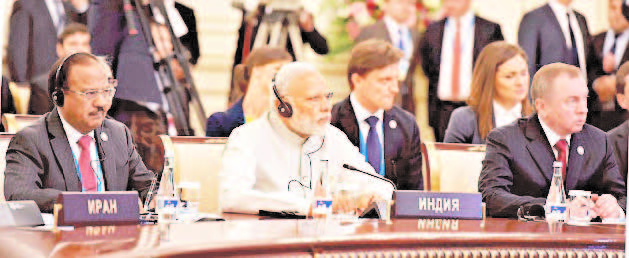
A disquieting feature of the Seoul setback was the diplomatic victory China scored over the US, in a forum established by the US and dominated by it for decades.
If China could block the US here, it does raise questions about US willingness and capacity to checkmate China elsewhere – not only in the South China Sea, but also in our region.
Washington is seeking expanded commitment from India against the rising Chinese threat in the Asia-Pacific region.
It should normally have reasoned that if its resolve to counter China on an issue such as India’s NSG membership – which China was opposing for purely political reasons and its unflinching support for Pakistan – was seen as weak, India would have less confidence in the tenacity of America’s rebalance towards Asia.
Business
Washington’s public support for India’s application and China’s equally public opposition to it made the issue of India’s NSG membership an open diplomatic tussle between the US and China.
Countries such as Austria, New Zealand, Ireland, Mexico, and Switzerland are amenable to firm US diplomacy, but were allowed to play into China’s hands and buttress its opposition by raising procedural issues.
China was allowed to inflict a diplomatic defeat on India and on the US itself.
China was a late entrant not only to the NPT, which it rejected as discriminatory for years, but also to the NSG, which it joined in 2004.
For such a country to swear by the NPT and project itself as a conscientious upholder of the NSG guidelines compared to the unprincipled approach of the US is quite ironic.
China’s nuclear relationship with Pakistan in the past – and even now -cannot withstand strict NSG scrutiny.
The US has chosen not to confront China on this issue as other differences have higher priority in its eyes.
Other factors have given China room for its NSG power play.
China is expanding its nuclear sector massively. US, French, and Russian companies are constructing several nuclear power plants in the country, which makes business considerations very relevant.
Kingpin

China has been offered a stake in the UK’s Hinkley nuclear power project, which requires huge investment.
France‘s Areva has signed a number of strategic agreements with China in the nuclear sector and is now offering equity in the company to China.
This would explain the reluctance to corner China on its nuclear cooperation with Pakistan and on India’s NSG membership.
China has behaved as a kingpin in the NSG, and has got away with it for the moment.
Ever since the India-US nuclear deal China has been challenging Washington’s global supremacy on non-proliferation matters.
To balance the India-US deal, China decided to enhance its nuclear cooperation with Pakistan by contracting to build two additional reactors without going through the process of seeking an NSG exemption for its protege.
It has deliberately tagged Pakistan’s NSG membership to that of India to show the US that it can exercise patronage on nuclear matters too – and without doing any preparatory legal work as the US did in India’s case.
Fragile
China deliberately fast-tracked Pakistan’s NSG membership application to derail a decision on India’s case, because it ensured that the procedural and criteria argument regarding membership of non-NPT countries became more germane.
Through such maneuvering China wanted to expose the fragility of the US commitment on our membership, and demonstrate that the latter could not steam-roll India’s membership against China’s wishes.
(The author is a former Foreign Secretary of India. He can be reached at sibalk@gmail.com)




Be the first to comment